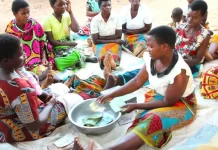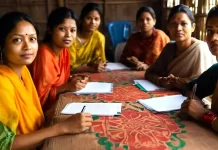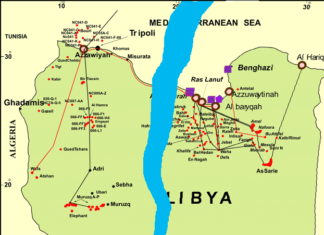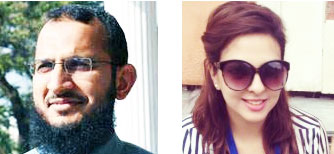 by Dr Abdur Rehman Cheema & Majida Malik
by Dr Abdur Rehman Cheema & Majida Malik
Named “business-in-box” (BiB), the project aims to reduce maternal mortality rate and infant mortality rate by increasing awareness and contraceptive prevalence rate.
[dropcap]T[/dropcap]he seventh target of the third Sustainable Development Goal calls for ensuring universal access to comprehensive sexual and reproductive health services. However, sustainability of development interventions beyond project is one of the most daunting challenges for governments, international and national civil society organisations. In most cases, development interventions and outcomes evaporate with the end of external support. But there are few exceptions of reproductive health interventions that somewhat sustained beyond project life, though with varying degree of success, such as “Shasthya Shebikas[1]” in Bangladesh by Building Resources Across Community (BRAC), “Community Health Promoter[2]” in Uganda by Living Goods and the project “Shakti[3]” by Hindustan Unilever Limited in India and so forth.
“I often wondered how development interventions could be sustained beyond project life”, says Manzoor Hussain of Rural Support Programmes Network (RSPN), who had 16 years of experience in health related projects. He picked up the idea of Business-in-Box (BiB) while traveling with the country head of BRAC back from Murree to Islamabad after participating in a workshop six years ago.
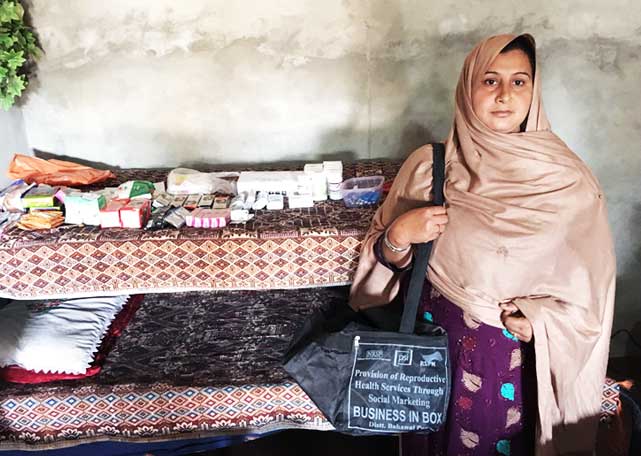
In partnership with Population Services International, RSPN initiated the project named “Provision of Reproductive Health Services through Social Marketing “in the rural areas of the three districts of Pakistan’s most populous Punjab province in 2013, an area uncovered by the government’s Lady Health Worker Programme. Named “business-in-box” (BiB), the project aims to reduce maternal mortality rate and infant mortality rate by increasing awareness and contraceptive prevalence rate among a population of over 900,000 in the three districts, one located in central and the two in the southern Punjab.
See Also: Pakistan: Why Not Invest in Multigrade Teaching?
BiB refers to a kit of daily household usage items and short term contraceptive materials (condoms and oral pills). Female Community Resource Person (CRP), recruited through Village Health Committee (VHC), is provided a BiB kit comprising items worth Pakistan Rs. 3,000 (US $ 30) as seed cost. BiB comprises contraceptives (condoms and pills), health and hygiene commodities (folic acid, iodized salt, sanitary napkins, iron, zinc, vitamin-A, shampoo, toothpaste, pregnancy strips) and over the counter medicines.
To address the challenge of social acceptability aspect of reproductive health, the communities were organized into small committees named as Village Health Committees (VHCs), using the time-tested social mobilization model of Rural Support Programmes in Pakistan. Comprising notable persons, the VHCs have been instrumental in ensuring social acceptability and accountability of the CRPs and providing the CRP with social support in overcoming resistance from community.
The VHCs nominate a Community Resource Person (CRP) from the community. CRPs conduct monthly visit to households in their designated area to register all married women of reproductive ages in their area. The CRPs provide awareness on birth spacing and contraceptive methods and refer potential clients to regular Lady Health Visitor camps organized as part of the project. Furthermore they also sell short-term contraceptive methods provided to them through project-organized supplies. The VHCs are federated at the union council (the lowest tier of administration in Pakistan) level to form Union Council Health Committees. The Union Council Committees support the VHCs by establishing supply chain to ensure cost-effective regular supplies to CRPs through bulk purchases.
As RSPN began to build sustainable model of micro-franchising blended with social entrepreneurship, 600 CRPs were hired on a monthly honorarium of Pakistani Rs 1000-2000 ($ US 10-20). They were provided with training on entrepreneurship.CRPs were to reinvest the income in BiB earned through the sale of BiB items. Each month, VHCs hold a meeting to discuss the performance of their CRP.
An internal study on BiB shows that 78 % CRPs successfully sold BiB items. These CRPs continued to purchase and sell these items and also added new items in BiB as demanded by communities. Customising for intended clientele, many CRPs expanded their BiB and included other items like women undergarment, cosmetics, bangles, jewellery, henna/mehndi, different fairness cream and hair removing creams. Also 33 % of CRPs expanded their BiB by establishing a small shop in their homes. Majority of CRPs, about 80%, were willing to continue working after the project since BiB generated enough profit making it sustainable and doable without external support.
“BiB helped me in making my own way, I can now finance my own education and expenses, I don’t need to depend on anyone”, says Sharifa, a 23 years young CRP district Bahawalpur. Similarly Asma Noreen, 24, a resident of Union Council Chak 22DNB, district Bahawalpur took advantage of this opportunity and expanded her BiB by adding stitching items like threads and needles. Building on her stitching skills, she added needles and threads in her BiB. The items were in demand but the village women could not access them readily. They had to wait for their male family members to take them to the market, which was far away.
You May Also Like:
“Sometimes we could not even afford a trip to the market but now we don’t need to leave our house since these items are available from Asma who lives nearby,” says one of her clients. Asma earned a profit of Rs 500 last month. “I am glad that I took this opportunity. My profit is gradually increasing for the last four months from Rs 200 to Rs 500 per month. I am empowered and I am less in need to depend on others since I have my own business now.”
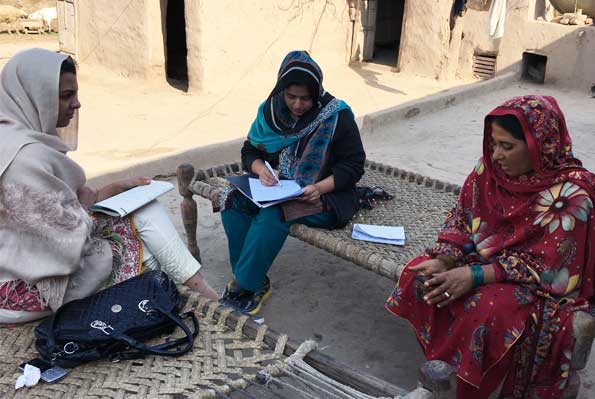
Sadia, 25, a resident of Union Council Ranjhay Khan, District Rahim Yar Khan opted to become her CRP despite a physical deformity in her right foot. Sadia generated 89 new happy clients of contraceptive methods. One of the clients says, “it takes us 30 minutes on motorbike and one hour by rickshaw and costs Rs. 100 to access health and hygiene items available in Sadiqabad. Before Sadia we had to wait for one of the male members in the family to take us to Sadiqabad. Now it is easier to buy them from Sadia in our neighbourhood but also she is flexible in payments”.
“I wanted to be independent but have a foot deformity and could not study as I couldn’t walk to school, an hour’s walk away. Though I have a foot abnormality, I am standing on my own feet now,” says Sadia, proudly.
To achieve health related Sustainable Development Goals, BiB is a new social innovation leveraging fusion of social entrepreneurship and micro franchising/financing. BiB, a socially innovative tool and design, is scalable, replicable and has huge transformative potential to create significant social impact. With financial sustainability and social acceptability and accountability, BiB is a distinctive innovation that it can be adapted in other similar contexts to carry other positive behavioural changes.
References:
[1] Building Resources across Communities (2011). “Microfinance Pioneer Sir Fazle Hasan Abed, Founder of BRAC, Advances “Business in a Box” Strategy”, Available from: https://www.brac.net/latest-news/item/489-microfinance-pioneer-sir-fazle-hasan-abed-founder-of-brac-advances-business-in-a-box-strategy . [Accessed 1 April 2016]
[2] LivingGoods, “LivingGoods-BRAC Joint Venture in Uganda.” Available from: http://www.living- goods.org/brac.asp. [Accessed 25 April 2016]
[3] Hindustan Unilever Limited, “Enhancing livelihoods through Project Shakti”. Available from: https://www.hul.co.in/sustainable-living/case-studies/enhancing-livelihoods-through-project-shakti.html , [Accessed 15 April , 2016]
(Dr. Abdur Rehman Cheema is a development studies academic and practitioner based in Islamabad. He is Team Leader Research at Rural Support Programmes Network, Islamabad. Majida Malik is a Research Associate at Rural Support Programmes Network, Pakistan)


